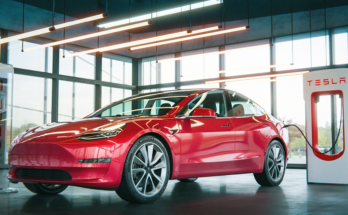
The future of freight trucking is experiencing a transition towards electric vehicles (EVs), with short-haul EV trucks being the first to be adopted. This shift is due to the limitations in mileage range of EV truck batteries, which make them ideal for short-distance transportation, also known as drayage transportation. In this article, we will explore the current state of the EV trucking industry and the challenges it faces as it looks to expand its usage.
Schneider Leads the Charge in EV Trucking
Schneider, a prominent player in the truckload, intermodal, and logistics sector, made a groundbreaking announcement in 2021 with the introduction of its battery-electric truck (BEV) fleet. The company has taken a major step towards embracing a greener future for the transportation industry.
The Benefits of EV Trucks
Schneider, along with other future of freight trucking companies, is investing in electric trucks to meet these regulations and to reduce their carbon footprint. The company has already placed orders for electric trucks and plans to invest in charging infrastructure and technology. Electric trucks are expected to reduce fuel costs and maintenance costs, as well as improve air quality. Schneider’s investment in electric trucks also reflects the company’s commitment to sustainability and its recognition of the growing demand for environmentally-friendly transportation solutions.
The transition to electric trucks will also create new job opportunities for technicians and engineers who specialize in electric vehicle maintenance and charging infrastructure. It will also benefit communities by reducing harmful air pollutants and noise pollution.
The investment in electric trucking by freight companies like Schneider is not only a response to regulatory requirements but also a step towards a more sustainable future. The long-term benefits of electric trucking, both economically and environmentally, make it a wise investment for the future.
Challenges Facing the Future of Freight Trucking
One of the main challenges facing the The future of freight trucking industry is how to navigate long-haul shipping with electric trucks. The current range of EV trucks is about 200 to 240 miles, depending on terrain, and it will take some time before battery electric trucks can travel longer distances. However, there are alternate fuels, such as hydrogen, that may get the industry there sooner with zero emissions.
The Department of Transportation approved plans for EV-charging stations in all 50 states, Washington D.C., and Puerto Rico, covering about 75,000 miles of highways. States also have access to over $1.5 billion to construct the chargers. Tesla delivered its first production semi-trucks in December to PepsiCo Frito Lay and boasts that its fast-charging system and battery allow a truck to travel 500 miles on a single charge.
Leading Companies in the Future of Freight Trucking
In addition to Schneider, other leading the future of freight truckingcompanies in the EV trucking industry include Volvo and Nikola Corporation, who are focused on the Port of Long Beach and the Port of Los Angeles, two of the country’s busiest ports. Performance Team, a subsidiary of Maersk, deployed Volvo short-haul EV trucks in Southern California last October. Amazon and Rivian Automotive are working together to transition last-mile delivery trucks to EVs, as well as General Motors’ subsidiary BrightDrop. California’s new mandate will require all zero-emission last-mile trucks by 2040.
Conclusion of the Future of Freight Trucking
The future of freight trucking to EVs in the freight trucking industry is underway, with short-haul EV trucks being the first to be adopted. Companies like Schneider are leading the charge, despite the challenges that the industry faces in terms of long-haul shipping. The benefits of EV trucking, both economically and environmentally, make it a worthwhile investment for trucking companies, who also hope to save money in the long run. With support from the Department of Transportation and leading companies in the industry, the future of freight trucking looks bright for EVs.
